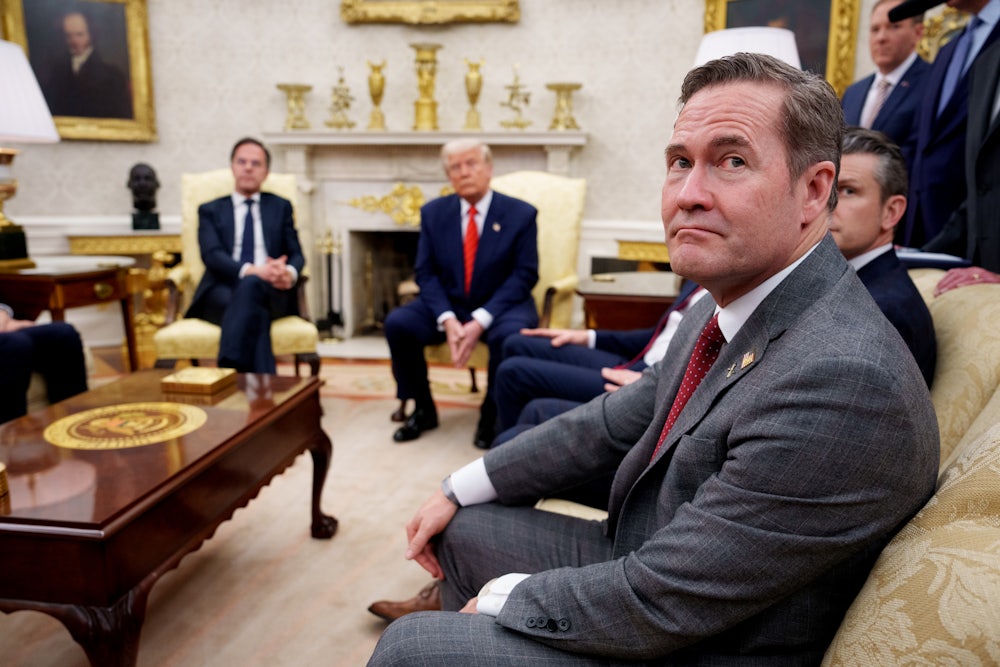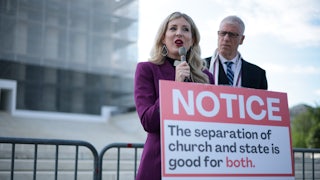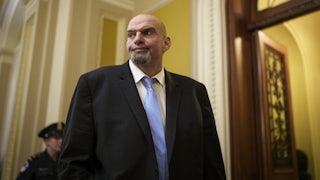When Jeffrey Goldberg, the editor of The Atlantic, was accidentally added to a group chat in March with the leaders of the national security Cabinet, the incompetence and sloppiness on display distracted from what the other participants in that chat were actually doing: planning a bombing campaign against Houthi rebels in Yemen.
It’s fitting that the purpose of the group chat was largely overlooked: Every president since George W. Bush has bombed Yemen as part of a forever war that has largely occurred in the shadows. Mike Waltz’s accidentally adding Goldberg to the group chat almost certainly contributed to Thursday’s announcement that Waltz, who had served as President Trump’s national security adviser since January, would be leaving his post and shuffled to the United Nations. But strikes on Yemen will continue under a new national security adviser as well.
Yemen is the poorest country in the Middle East, and most Americans probably don’t realize that under various pretenses—from the war on terror to a Saudi-led war on the country to protecting shipping lanes in the Red Sea—the United States has been attacking it for two decades. As Israel’s crackdown on Hamas in Gaza has expanded into a regional war and what human rights organizations have documented as a genocide, the Houthis have expressed support for Palestine by launching strikes on both Israel and on important maritime trade routes.
This week, in some of his final hours as national security adviser, Waltz doubled down on the value of the war on Yemen that in the last month alone has killed 500 civilians. Writing in The National Interest to mark Trump’s 100 days in office, Waltz described them as a success story. He commended the president’s “bold decision to launch strikes against the Iran-backed Houthi terrorists in Yemen, who were constantly attacking American and international ships in the Red Sea” and argued that “President Trump’s operations against the Houthis go hand-in-hand with a broader campaign of imposing maximum pressure on Iran.” On Wednesday, he boasted that the U.S. had hit over a thousand targets in Yemen. Waltz could crow all he liked about the bombing campaign, but it wasn’t enough to save his job. On Thursday, Trump moved him out of the White House.
From Biden to Trump, commanders in chief of both parties would rather bomb Yemen than tell Israel to stop bombing Palestinians—indeed, in this respect at least, there is continuity between the two presidencies. Although Trump ran as an anti-war candidate and has broken with much of Biden’s foreign policy platform, one area that has remained remarkably consistent with the capital’s national security blob is the autopilot-like tendency to bomb our way to a solution in Yemen. Now it’s led to Waltz’s downfall.
A retired Green Beret and former Florida congressman, Waltz was the first elected official to hold the national security adviser position. He came up as an aide to Donald Rumsfeld and Robert Gates. Ever the politician, he was regularly thinking about and attempting to shape how voters would perceive the administration’s foreign policy choices at town hall meetings across the country, a U.S. official told me.
But there were contradictions Waltz simply couldn’t square. He couldn’t overcome the most militaristic tenets of the Washington establishment, which seems unwilling or unable to seek out a diplomatic solution to Yemen. “If the U.S. stops targeting Yemen, we will cease our military operations against it,” Mohammed al-Bukhaiti, a Houthi spokesperson, recently told Drop Site News. “If the U.S. ends its hostile policies against us and our Islamic nation, we will stop our hostile actions against it. So, the ball is in the court of the ruling establishment of Washington.” When Israel stopped hostilities as part of the brief ceasefire Trump’s team negotiated, the Houthi halted attacks on shipping lanes.
Trump officials, to their credit, have engaged in some creative diplomacy with Hamas, Russia, and Iran. But on Yemen, the status quo—or potentially escalation by way of a ground invasion, as the Pentagon is discussing—has been the only approach.
Waltz sought to learn lessons from the four national security advisers in Trump’s first term who struggled to reconcile the process-driven institution of the National Security Council with a president who governs by instinct. “Part of it is having a lot of conversations about how we’re going to conform the system to his style,” Waltz told conservative pundit Ben Shapiro in December. “Frankly, I think some of my predecessors, who were great, tried to conform him to the national security apparatus, and that did not work, for a lot of reasons.”
The Signal exchange displayed the pitfalls of such a process. The best national security advisers are said to present leaders with a menu of options—exploring each of their potential contingencies—and guiding deliberation among experts, well before the bombs are dropped. So it’s strange that Waltz would later describe the group chat to Fox News as a “healthy policy debate”—especially given that the platform’s disappearing messages were likely intended to conceal the seriousness of strikes that, since mid-April, have killed hundreds of civilians in Yemen.
Deepening endless war was exactly what Trump had campaigned against. It became Waltz’s undoing. His removal is the culmination of a failed approach to Yemen that took as a given that strikes were the only option.
Though American bombs haven’t deterred the Houthis, the destruction of Yemen has been widespread and undermines American interests. And it’s totally ineffective. American strikes frequently kill civilians and are often haphazardly selected.
On April 28, a site wrongly identified as a Houthi stronghold by two social media accounts led to the killing of eight innocent Yemenis. The same day, 68 people were killed in a U.S. strike on a migrant detention center. There were innocent families in Yemen torn apart by American Tomahawk missiles on the other end of strikes that came out of the Waltz’s Signal chat. “Every day they are crying, remembering this family that disappeared without any reason,” a neighbor who felt the reverberations of the attack told Rozina Ali at The New Yorker.
A serious concern is the potential for the Houthis to target American service members in the Middle East, whether on aircraft carriers or fighter jets or one of the many U.S. bases dotting the region. If anything, the Houthis have come out stronger after recent bombing campaigns from two different American presidents, showing the group’s resilience in the face of the world’s biggest military.
Trump’s bombardment of Yemen is on a continuum of far-flung war projects that have scarred American presidencies, from Iraq to Vietnam. Like the $2 million missiles the Pentagon sends to knock out $2,000 drones, the Yemen blowback has reached the national security adviser. Even if Waltz emerges from this with the United Nations ambassador job, the Signal scandal and its fallout reveal that the forever war in Yemen is not without significant costs.




